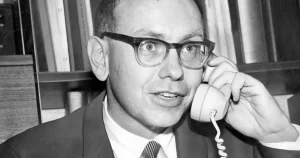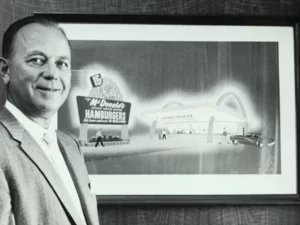I have spend a lot of time contemplating the characteristics and traits that make up the most successful CEOs and businessmen in this world, and for the past several years I have been fairly convinced that the best CEOs are salesman. It seemed to me to be intuitive; a majority of the most successful CEOs and businessmen are or have been salesman or at least very skilled in the art of sales. Whether you take Jeff Bezos, Donald Trump, Richard Branson, or almost any major executive that you can think of, a common thread is that they are especially good “movers.” It is not surprising then that one of the most common departments to move from into CEO roles is the sales department. The trend seems to establish a fairly obvious pattern…or so I thought. Recently I have been reading Warren Buffet’s “The Snowball,” his most famous and well read biography. While reading this book, I have begun to realize that Warren Buffet is not, by trade or habit, a salesman. In fact, he is and always have been a rather awkward individual. This is not to say that he is not charming or charismatic, but that, simply put, he is an odd ball. He has always been more of a mathematician than a salesman, his true passion being investing. Wickedly smart, Warren has always had a knack for numbers, not unlike his partner Charlie Munger. In addition, Warren Buffet is a ruthless business man, prioritizing the “cash flow” over the “fit.” This is not unlike Donald Trump who has a tendency to come across as a “always be closing” type. While always considering his likability, Buffet maintains his “inner scorecard” which helps to center him around his own axis and not that of others and what they think of him.
This leads me to asking the question of this post: how,without any kind of sales intuition, is Buffet such a skilled business man? The answer to this question I have concluded is that it is his farsightedness and determination. Since he was a young boy, it has been Buffets dream to make a lot of money. Even before the age of ten, Buffet was determined to be a millionaire by the age of 30, and have $1000 as soon as he could. He worked the skin off of his fingers and the souls off of his feet in jobs that he hated, nor was very good at, until finally, by the age of 14, reached $1000. By the age of 32, he made his first million. His farsighted and goal oriented mindset positioned him well to be successful, and his determination sealed the deal. This would seem to me to a be the best indicator of success. Although not always true – as shown by the success rate of narcissists – goal orientation and determination with achieving those goals would seem to be a more beneficial trait, even then business savvy, sales skill, or a knack for numbers.
I have concluded is that it is his farsightedness and determination. Since he was a young boy, it has been Buffets dream to make a lot of money. Even before the age of ten, Buffet was determined to be a millionaire by the age of 30, and have $1000 as soon as he could. He worked the skin off of his fingers and the souls off of his feet in jobs that he hated, nor was very good at, until finally, by the age of 14, reached $1000. By the age of 32, he made his first million. His farsighted and goal oriented mindset positioned him well to be successful, and his determination sealed the deal. This would seem to me to a be the best indicator of success. Although not always true – as shown by the success rate of narcissists – goal orientation and determination with achieving those goals would seem to be a more beneficial trait, even then business savvy, sales skill, or a knack for numbers.
This position would seem to be confirmed or at least supported by my last post on the founder of what we now know as McDonalds. Ray Kroc, a shoddy  salesman and often equally shoddy businessman, was determined; he knew what he wanted and was able to see the potential in ventures before anyone else saw them. As soon as he heard of McDonalds, he knew that it could be a name that every family and individual in the US would come to know and love. He knew this, not because of the speedy system or because of a belief in its owners; he knew it because he saw something no one else did…the power of the name MCDONALDS. He had a dream, and was determined, even since he was young, to make that dream a reality.
salesman and often equally shoddy businessman, was determined; he knew what he wanted and was able to see the potential in ventures before anyone else saw them. As soon as he heard of McDonalds, he knew that it could be a name that every family and individual in the US would come to know and love. He knew this, not because of the speedy system or because of a belief in its owners; he knew it because he saw something no one else did…the power of the name MCDONALDS. He had a dream, and was determined, even since he was young, to make that dream a reality.
So in resume, is charisma or an ability to sell an indicator of business success, and do skilled salesman make the best CEOs? In many ways I am still convinced this is largely true. However, it certainly is not the ultimate or even the first predictor or trait of success in business.
I would agree with you that the best CEO’s are Salesmen first however they also understand and know the rest of the business and know how to treat people well. I think being a good salesman and treating employees and piers properly really makes you a good CEO in the long run.